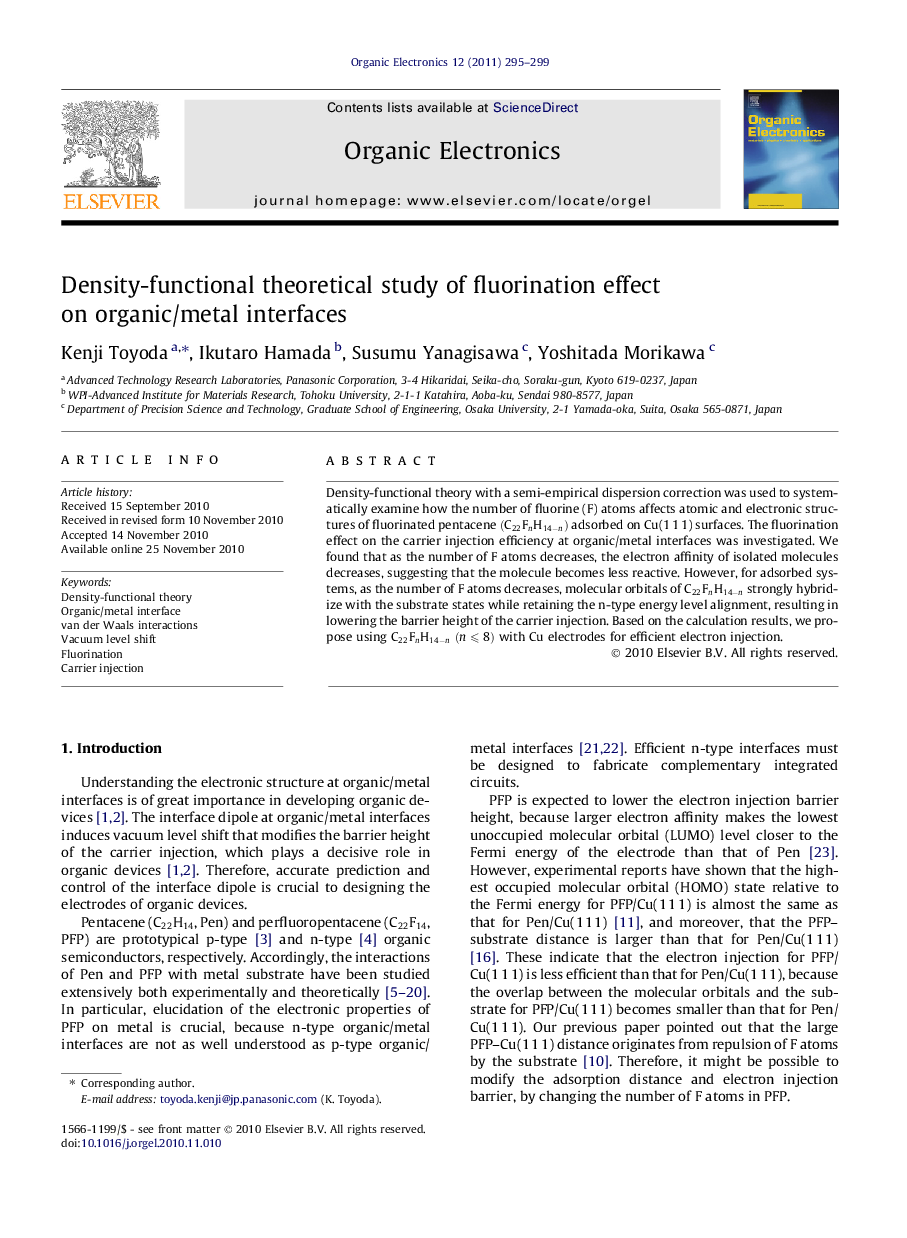| کد مقاله | کد نشریه | سال انتشار | مقاله انگلیسی | نسخه تمام متن |
|---|---|---|---|---|
| 1264767 | 972174 | 2011 | 5 صفحه PDF | دانلود رایگان |

Density-functional theory with a semi-empirical dispersion correction was used to systematically examine how the number of fluorine (F) atoms affects atomic and electronic structures of fluorinated pentacene (C22FnH14-n)(C22FnH14-n) adsorbed on Cu(1 1 1) surfaces. The fluorination effect on the carrier injection efficiency at organic/metal interfaces was investigated. We found that as the number of F atoms decreases, the electron affinity of isolated molecules decreases, suggesting that the molecule becomes less reactive. However, for adsorbed systems, as the number of F atoms decreases, molecular orbitals of C22FnH14-nC22FnH14-n strongly hybridize with the substrate states while retaining the n-type energy level alignment, resulting in lowering the barrier height of the carrier injection. Based on the calculation results, we propose using C22FnH14-n(n⩽8) with Cu electrodes for efficient electron injection.
Figure optionsDownload as PowerPoint slideResearch highlights
► We investigate the fluorination effect on organic/metal interfaces using density-functional theory with a semi-empirical dispersion correction.
► For fluorinated pentacene (C22HnF14-n)(C22HnF14-n) adsorbed on Cu(1 1 1), as the number of F atoms decreases, molecular orbitals of C22HnF14-nC22HnF14-n strongly hybridize with Cu substrate states while retaining the n-type energy level alignment.
► We propose using C22FnH14-n(n⩽8) with Cu electrodes for efficient electron injection.
Journal: Organic Electronics - Volume 12, Issue 2, February 2011, Pages 295–299